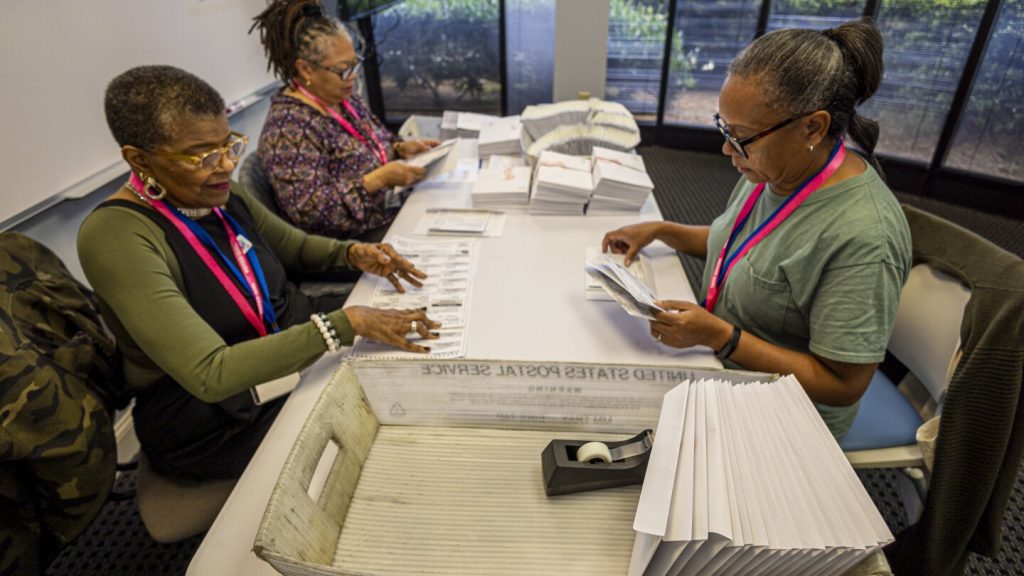North Carolina’s first absentee ballots for the November election will now be distributed starting late next week, following a series of legal battles surrounding the inclusion of Robert F. Kennedy Jr.’s name on the ballot. Kennedy had sued the State Board of Elections to remove his name as the We The People party candidate after suspending his campaign and endorsing Republican nominee Donald Trump. The board had printed over 2.9 million absentee and in-person ballots before the court order halted the mailing of ballots containing Kennedy’s name.
In response to the court rulings, county election officials in North Carolina had to reassemble absentee ballot packets, reprint ballots, and recode tabulation machines. As a result, the state board announced a two-tiered release of absentee ballots, with ballots for military and overseas voters being sent out on September 20 to comply with federal law. Absentee ballots for other voters who have requested them by mail will be sent starting on September 24. The board is giving counties more time to ensure their vendors can print enough amended ballots and prepare for mailing.
Counties in North Carolina will incur the costs of reprinting the ballots, with expenses varying widely depending on the county size. Wake County, the state’s largest by population, faces a printing cost of $300,000. Early in-person voting in North Carolina is set to begin on October 17, with the deadline to request absentee ballots being October 29. A new law requires most mail-in absentee ballots to be turned in to election officials by 7:30 p.m. on Election Day, which is a change from previous deadlines.
Kennedy, who has been seeking to remove his name from ballots in key battleground states like North Carolina, sued the state board after it determined it was too late in the printing process to remove his name. The state Supreme Court ruled in favor of Kennedy, stating that keeping his name on the ballot could disenfranchise voters who might still believe he is a candidate. Republican justices supported this decision, while dissenting justices argued that state law allowed for Kennedy’s name to remain on the ballot due to practical constraints related to making changes so close to the distribution deadline.
Despite the legal challenges and delays, North Carolina is moving forward with the distribution of absentee ballots for the November election. With over 166,000 voters having already requested absentee ballots, the state is working to ensure that all voters are able to participate in the upcoming election. The controversy surrounding Robert F. Kennedy Jr.’s name on the ballot has highlighted the complexities of election logistics and the importance of ensuring that voting processes are carried out fairly and accurately. As voters prepare to cast their ballots, counties and election officials in North Carolina are working diligently to ensure a smooth and efficient election process.


